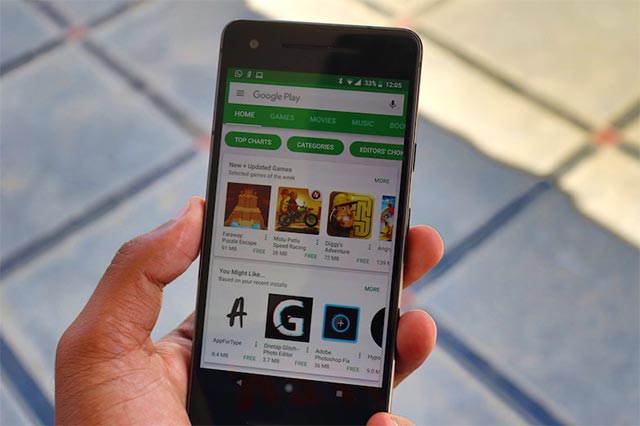Google: Play Protect helped cut 20% of malicious Android application installations by 2018
To reschedule, Google recently officially announced the Security & Privacy Year in Review report periodically. Basically, this is an overall report that details how Mountain View giants have made it more secure for more than 2 billion Android devices worldwide. The Security & Privacy Year in Review can also be considered a massive 'documentary' with a total of more than 30 A4 pages, however, in general, we only need to pay attention to some outstanding figures.
In this year's report, there is a notable information, that is Google has revealed that Google Play Protect - Android's AI-based integrated protection mechanism, successfully scanned more than 50 billion applications. Android devices and up to 500,000 cloud applications every day, thereby significantly reducing the number of potentially malicious applications (Potentially Harmful Applications - PHAs) in the company's platforms. The information became even more noticeable when in 2018, only 0.08% of Google Play devices dedicated to downloading Android apps were affected by PHA and even installed devices from outside the Play Store - 0.68% of which is affected by one or more PHA, a lot less than 0.80% in 2017.

- Google Maps adds an exciting new version of the Snakes game for April Fool's Day
In fact, Google said Play Protect has successfully blocked more than 1.6 billion PHA installed from outside the Google Play platform in 2018 - an impressive number. Efforts to install applications outside of Google Play were down 20% from the previous year, and 73% of the PHA installation process was forced to stop successfully in 2018, up slightly from 71% in 2017 and 59% in 2016.
In total, only 0.45% of Android devices running Play Protect successfully installed PHA in 2018 compared to 0.56% of devices in 2017, equivalent to an improvement of up to 20% compared to last year. Moreover, Google also said that the successful installation rate of PHA on the total number of installations in 2018 has decreased by 38% compared to the previous year, 2017.
Besides, Play Protect is not the only tool that Google uses in the battle against PHA. Build Test Suite (BTS) - PHA scanning service is preloaded on software builds for OEM devices that partner with many of Google's services, contributing to prevent successful 242 builds containing intrusion PHA into the Android ecosystem, and Google claims that this tool has helped more than 300,000 developers successfully overcome about 1,000,000 applications by the end of 2018.

- Surprise: Google Docs editing tool is the most popular messaging app for American teenagers
Are there any other changes that make a difference? Yes, it is the emergence of new alerts from Google Play that warns users of unwanted software on mobile devices (MUwS), installed outside of Google Play. These are applications that are not entirely malware, but sneaky crawl such as phone numbers, email addresses, information about installed applications and third-party account data. Google said that because of these alerts, the total number of attempts to install the MUwS application on Android systems has dropped from 2.09% in 2017 to only 0.75% in 2018.
Another information is also noteworthy, which is that in 2018, security updates are often transferred to the device at a higher frequency than in previous years. In the fourth quarter of 2018, 84% more devices received security updates compared to the same period last year, and as of December 2018, more than 95% of Google Pixel 3 and Pixel 3 XL devices were running versions. Latest security updates.
Finally, Google also successfully intervened against the pre-installed PHAs. The company said that starting from 2018, every new device that wants to receive Android certification must go through the same security scanning process as the apps on Google Play. Google's security scanner will conduct common privacy and privacy issues, as well as refuse to certify the device until the manufacturer resolves the problem clearly. At the same time last year, the amount of money Google awarded to security bug hunters surpassed $ 3 million - a record number that shows that Google is really concerned about ensuring safety. for your platforms.

- Technology comment: Google Stadia and Mountain View giant's ambition to dominate the gaming industry
Combining all the information together, we can see how Google 's efforts last year have strongly impacted the user experience for the Android ecosystem, especially when it comes to security and privacy.
Hopefully Google will also push harder on security for Android in 2019 so this operating system really deserves to be the most popular mobile platform in the world!
You should read it
- ★ Google declined to add 55% of the new Android application to Play Store in 2018, but that's not enough!
- ★ What to do when Google Play Store is not working?
- ★ Google is determined to prevent bad apps before they reach users on the Play Store
- ★ Google's new Play Protect system failed from the first test
- ★ Discovering many applications containing malware on Google Play Store, Android users should worry gradually